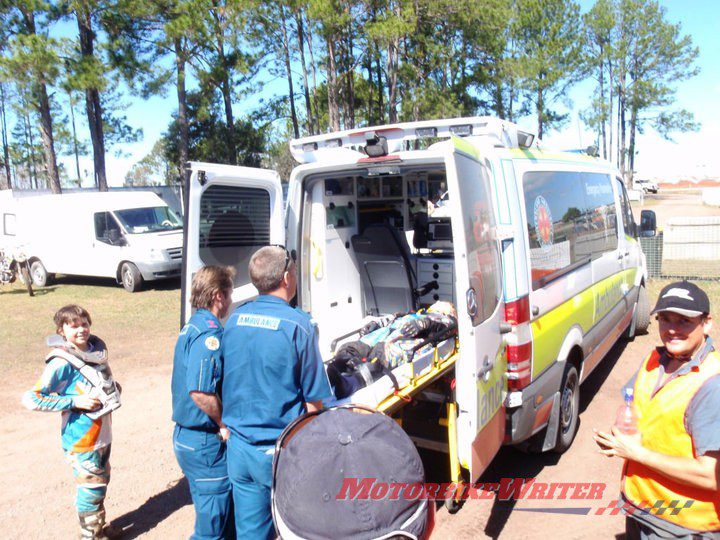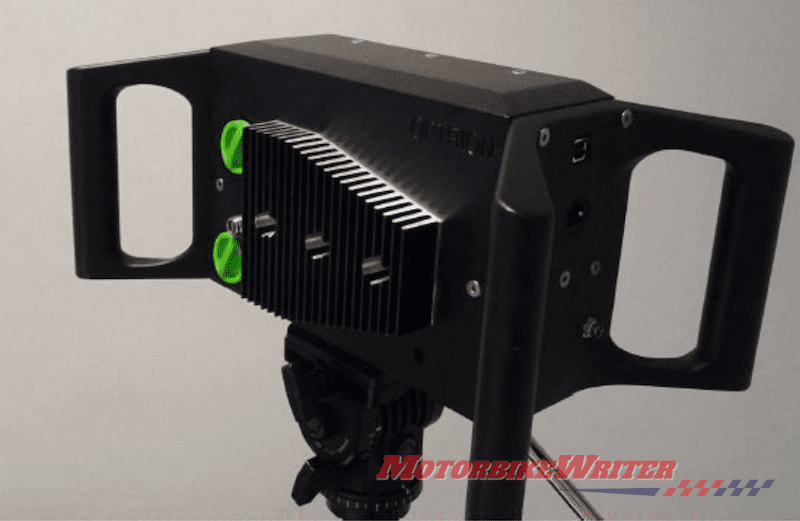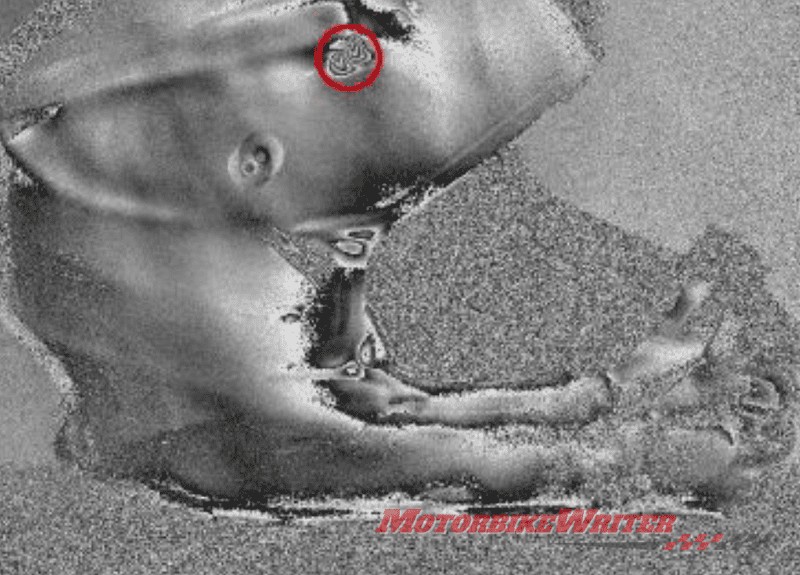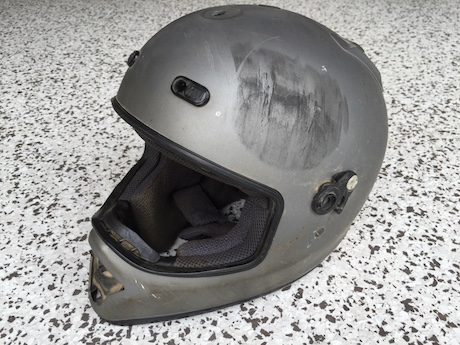More than 70% of respondents to a survey have supported a $40 helmet scanning service to check for hidden fractures in your helmet.
The Helmet Doctors who developed the helmet laser-scanning invention say it would give riders peace of mind that their helmet is safe to use after a drop or crash, or whether it needs to be replaced.
The Sunshine Coast family business asked Motorbike Writer in February to publish a link to a survey about their service and received more than 430 respondents.
Federal funding
Brayden Robinson, who founded the venture with this father, Scott, says the Federal Government is considering some funding for the safety service but needed to know if it would be well received by riders, racers and the motorcycle industry.
“Just over 72% (of survey respondents) said they would be prepared to pay for the scanning service once a year or after every accident and some even said twice a year,” he says.
“We’ve had both really positive and negative feedback from people which is all very helpful.
“AusIndustry commercialisation advisors told us that if we received 100 responses it would be good, 200 would be convincing and 300 would be conclusive.
“Well, we’ve now had more than 430 respondents and the survey is still open.”
You can take part in their quick 10-question online survey by clicking here.
The scanning service has stalled while the Federal Government is in caretaker mode, but Brayden and Scott are confident even a change in government will not affect funding.
Crash starts study

Scott and Brayden began researching a helmet scanning system after Brayden was hospitalised with a fractured skull from a motocross crash.
They developed their device with the help of a Belgian company and the Composites Research Group in the School of Mechanical and Mining Engineering at The University of Queensland.
“We found this laser scanning technique can categorically guarantee that, if there is any damage to the helmet’s outer shell, our technique will identify it. It’s ground-breaking, proven science,” Scott says.
The Helmet Doctors have a Patent Cooperation Treaty (PCT) application that allows them to enter their patent application into any of 152 jurisdictions by 23 June 2020.
At present the application has been examined by the international PCT body and all but one claim has been found to be novel over identified existing technology.
Need for scanning

Scott says very few riders know exactly when to replace their helmet.
Manufacturing safety standards say a composite helmet has a lifespan of five years and, if used frequently, about three years.
But what if you drop it or have a crash?
“We have all heard how if you drop your helmet once you should replace it. But very few do this,” Scott says.
“No one knows how much impact a composite helmet can tolerate before the shell is critically weakened.
“Composite materials have many layers and tiny fibres that can be damaged in a fall.
“The impact energy is dispersed among the fibres and away from the brain which it is designed to do.
“This is why a dropped helmet may still look ok.
“However, the impact could have led to a small crack or splintering which you can’t see with the naked eye.
“Our device can view, read and record the helmet 100,000 times better than the naked eye and find if there are any cracks, splintering or deformations which would make the helmet defective and unable to withstand another impact.”
Helmet scanning scheme

The Helmet Doctors plan to test their service first in South East Queensland.
Riders would take their helmet to a participating motorcycle dealer where they would leave it and pick it up a few days later.
The helmet would be sent to the nearest scanner depot where it would be scanned, assessed and returned.
Scott says the Federal Government is considering some funding for the safety service but needs to know if it would be well received by riders, racers and the motorcycle industry.
“As you could imagine this experimental laser camera is very expensive, but our goal is to make this service accessible and cheap enough for everyone to use it,” Scott says.
If the project is successful, they hope to extend the service to other states and overseas.


